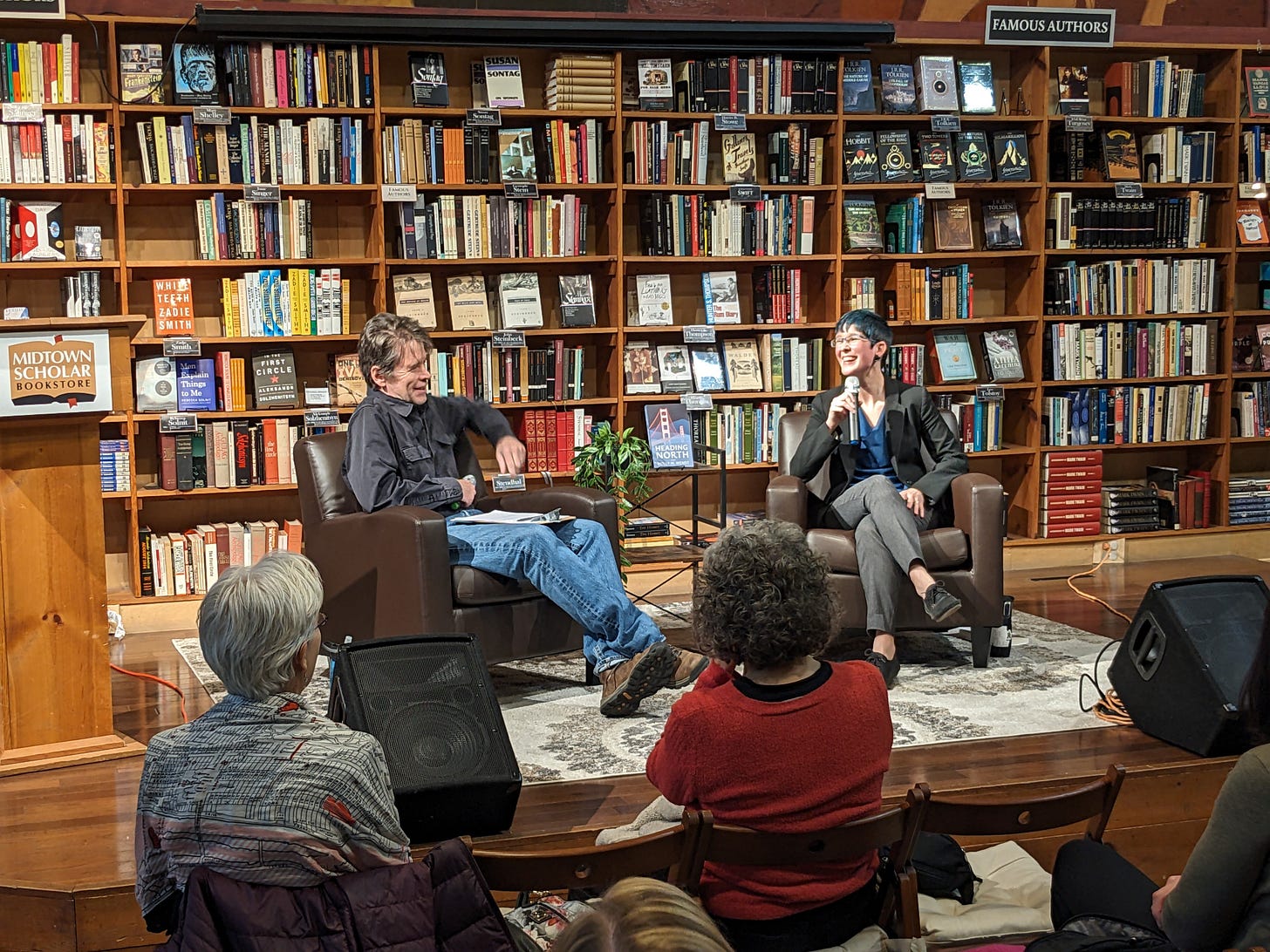I’m excited to share a few upcoming events for Heading North: on Tuesday, November 28, I’ll be doing the Annville Free Library’s Take a Break Tuesday feature (6:30 p.m. in Annville), and on Wednesday, November 29, I’ll be reading at The Bricks Reading Series, hosted by Blue Stoop, at H&H Books in Philadelphia! Would love to see you there! See my full events schedule here.
I love a long drive. Not a drive of two hours—two hours is terrible—but five and six and even longer, if I’m feeling saucy. After the four-hour threshold, the trip itself becomes the only thing I am capable of feeling responsible for, and the nature of driving is that one shouldn’t be multitasking in any particular way for reasons of safety. Thus, it becomes a kind of enforced meditation: a separation from all other concerns of the moment, or at least as much as that can be achieved via the most singable tracks in my music collection. Of course, the time could be devoted to mulling over some important issue, but in mid-November, on the way to my first Book Tour events, in the midst of Everything, I had no thoughts, really, that I wanted to dwell with. So: volume up, EZPass equipped, attention to the present at the ready. A great deal of the trip—central Pennsylvania to Windsor, Ontario to western Massachusetts to Ithaca, NY, to following Interstate 81 back home—was through rural landscapes, and there was much to look at—more than enough to keep me well occupied for all 1550 miles. Deer, squirrels gray and black, various raptors I couldn’t identify, an eagle I could—and thankfully none of them on the road when I was. The barest sliver of moon hanging over the Ohio border, the long bridge leading into the Berkshires with a view of the valley below.
But today’s the start of my third day back from that trip, and I feel like I’m still moving.
I have mentioned Wendell Berry’s essay “An Entrance to the Woods” in a previous post, in which I talked a bit about changing locations geographically and temporally in my teaching from hour to hour, but over the past days, I was thinking of what he said about the ways in which our ability to rapidly change locations physically outpaces our brain’s processing of that change:
Once off the freeway, my pace gradually slowed, as the roads became progressively more primitive, from seventy miles an hour to a walk. And now, here at my camping place, I have stopped altogether. But my mind is still keyed to seventy miles an hour. And having come here so fast, it is still busy with the work I am usually doing. Having come here by the freeway, my mind is not so fully here as it would have been if I had come by the crookeder, slower state roads; it is incalculably farther away than it would have been if I had come all the way on foot, as my earliest predecessors came.
It kept boggling me: one morning I was in my classroom and the next I was pulling up to Biblioasis Bookshop in Windsor, a box of books under my arm. By the same time the next day, I was on my way across Ontario. My mind, too, was everywhere. I say I was busy having no thoughts, but in truth, I was having all of them at once and trying to head off at the pass the tendency to rehearse conversations or arguments I wasn’t actually having and the infinite uncertainties of sharing my debut novel with the world (or at least a handful of kind souls at a time who brought beautiful questions and great conversations). The shifting of tasks, of which person I need to be from hour to hour—author, teacher, mentor, friend, child, guest, host, public person and private—feels like a similar kind of movement, a similar kind of rapidity, even when they overlap a great deal.
I come out of this week—these past two weeks, really, of Heading North being somewhat in the world1—feeling grateful and exhilarated and like a lot of different versions of myself, and that alone is pretty interesting. And here, at the semester’s end and on the edge of lots of different things, there probably isn’t a “crookeder, slower way” toward or through any of it. Onwards.
Work toward peace: contact your representatives to call for a ceasefire.
Some treasures:
“The Papermaker War” by Beth Kephart: Yellow jackets, paper-making, and navigating vulnerability.
Goalie goals! Wilkes-Barre Scranton Penguins goalie scores his second AHL goal.
“The Flamingo” by Joel Hans: a short and tender dream to break your heart, published this week at HAD. I first encountered Joel’s work at an AWP off-site reading years ago, where he read one of his “Endlings” pieces, about the last of certain species, and though that was almost ten years ago now, I still think about those pieces regularly.

Copies are on their way! I have been assured they’ve hit the mail!


